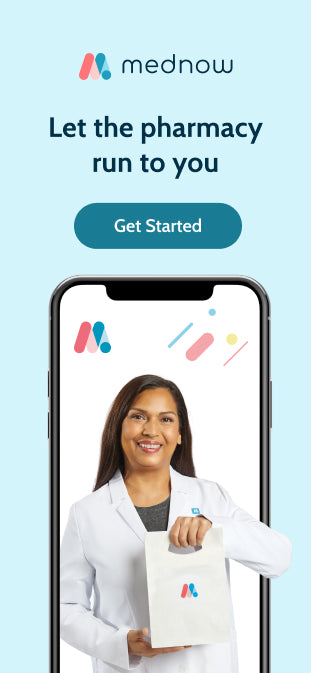Did you know that 4.48 billion people use social media around the world? Between scrolling on Instagram, learning TikTok dances and responding to Twitter threads, it’s easy to get caught up in global conversation hosted on these platforms.
With more than two-thirds of the world population owning mobile phones, social media has become increasingly accessible. On one hand, social media has the power to share valuable information, boost business profit, and serve as a source of inspiration. On the other hand, social media can lead to low-quality sleep and have a detrimental impact on mental health.
Stay with us as we explore the positive and negative impact of social media on mental health, and how to safeguard your well-being against the harmful effects of social media.
Why Social Media Affects Mental Health
Social media has the power to enhance communication, connect friends and express opinions. In the same breath, it can have a negative impact on mental health in several ways.
Consider that teens in Canada spend more than five hours a day on social media, consuming various types of content. Spending time on social media can be addictive, especially for teens and young adults.
One of the biggest pull factors toward social media is the release of dopamine and social reward. However, social media can also trigger feelings of inadequacy and present warped perceptions of reality.
Positive Effects of Social Media on Mental Health
Social media is an everyday presence in life, especially among teens. Statistics in Canada reveal that Facebook is the most popular social media platform, with 83% of online adults having a Facebook page, followed by messaging apps (65%) and YouTube (64%).
Spending time on social media offers an opportunity to teach social skills, strengthen relationships and provide entertainment.
For example, social media offered a way to connect with loved ones during the recent pandemic and provide emotional support during difficult times. Social media can be a useful source of information and learning.
Negative Effects of Social Media on Mental Health
It’s important to acknowledge that the impact of social media on mental health isn’t always positive. Social media causing depression and anxiety isn’t unusual. If your loved one is experiencing these struggles, then there are various ways to help them cope with depression.
Social media statistics reveal that one in six US teens have experienced the following negative impact of online activity;
- The victim of cyberbullying (59%)
- Being called unsavoury names (42%)
- The subject of false rumours (32%)
- Receiving unwanted images of explicit nature (25%)
- Being tracked by someone other than a parent or guardian (21%)
- The subject of physical threats (16%)
- Having explicit images of themselves shared without permission (7%)
Abusive behaviour, such as the above, demonstrates how social media causes mental illness, triggering the likes of anxiety and depression. There are various ways to overcome anxiety and depression, including limiting exposure to triggering content on social media.
There’s a connection between high use of social media and increased risk of mental health struggles. For example, girls who used social media for at least two hours a day from the age of 13 years old have a higher clinical risk of suicide in their later, adult years.
Signs That Social Media Is Impacting Your Mental Health
Using social media and mental health are closely connected. While each person is unique, there are certain signs that indicate social media is impacting your own mental health or the well-being of a loved one.
FOMO, which stands for the “fear of missing out”, is one of the most notable impacts of social media. Seeing the highlight reel of other people’s lives can lead to social anxiety. Yet experiencing FOMO is not the only sign of social media having a hold over people’s lives.
For example, some people struggle with “Facebook depression” after being inundated with negative news and global happenings.
Pay attention to the following indicators that could suggest a dependency on social media or the existence of negative repercussions.
- Checking your phone on impulse, including in the middle of conversations
- Spending more time on social media than necessary
- Falsely validating the amount of time spent on social media
- Withdrawing from family, friends, and opportunities to connect in-person
- Losing interest in school, sport and hobbies
- Experiencing social anxiety or withdrawal symptoms when separated from social media platforms
- Having a deep desire to share on social media
- Obsessively counting followers, likes and comments
How to Prevent Negative Effects of Social Media
Whether you’re struggling with the negative effects of social media on mental health yourself, or you’re looking out for a loved one, there are some practices that can help. Consider the following as a starting point.
Reduce time spent on social media
Research recommends a maximum of 30 minutes of social media usage per day. Reducing the amount of time on social media can boost your mental health. There are several ways to actively reduce the amount of time that you spend on social media.
- Install an app on your smartphone to track the amount of time you spend online, and intentionally try to reduce the amount of time
- Put your phone on Do Not Disturb during certain hours of the day
- Keep your phone away from the bedroom or dinner table
- Disable social media notifications
- Remove the number of social media applications on your mobile phone
Change your focus
Shift your mentality to prioritize the positive effects of social media and assess your motivation for logging online. Instead of picking up your phone in a moment of boredom, you can be more intentional about the reason that you use the platform.
Being mindful with social media gives you an active role in using each platform, instead of becoming consumed by content through passive scrolling.
Spend more time with offline friends
Social media is great for staying in touch with friends on the other side of the world, but it is not a replacement for face-to-face interactions. In-person communication offers increased emotional satisfaction and fulfilment.
Make an effort to arrange meet-ups with friends and set aside time to connect with family and friends offline. You can also push your comfort zone and join a club or interact with strangers.
Express gratitude
Social media can conjure feelings of depression, insecurity, animosity, anxiety and stress. Expressing gratitude can shift the focus and shine the light on the beauty of life.
Carve out time to reflect on everything that you’re grateful for and practice mindfulness on a regular basis. Volunteering in the community can also offer perspective and build social connections.
Protect Your Child or Teen From Unhealthy Impact of Social Media
Education and support are at the heart of preventing problems with social media. There are certain guidelines for the safe and healthy use of social media, leveraging the benefits of various platforms.
For example;
- Monitor your child’s social media use without invading their privacy
- Set limits on the time spent on social media
- Talk to your child about underlying issues such as cyberbullying
- Enforce “social media” breaks
- Teach your child how social media is not an accurate reflection of people’s lives or reality
- Encourage exercise and offline hobbies such as reading, listening to a podcast or cooking
At Mednow, we offer practical health-related insights exploring useful information about daily struggles. We also provide personal pharmacist attention for your pharmacy needs, with safe, fast and free delivery.
We’re here to make your mental health struggles easier by providing online mental health care in Ontario, British Columbia and Nova Scotia.
This article offers general information only and is not intended as medical or other professional advice. A healthcare provider should be consulted regarding your specific situation. While the information presented is believed to be factual and current, its accuracy is not guaranteed and it should not be regarded as a complete analysis of the subjects discussed. All expressions of opinion reflect the judgement of the authors as of the date of publication and are subject to change. No endorsement of any third parties or their advice, opinions, information, products or services is expressly given or implied by Mednow or its affiliates.
Get Started
